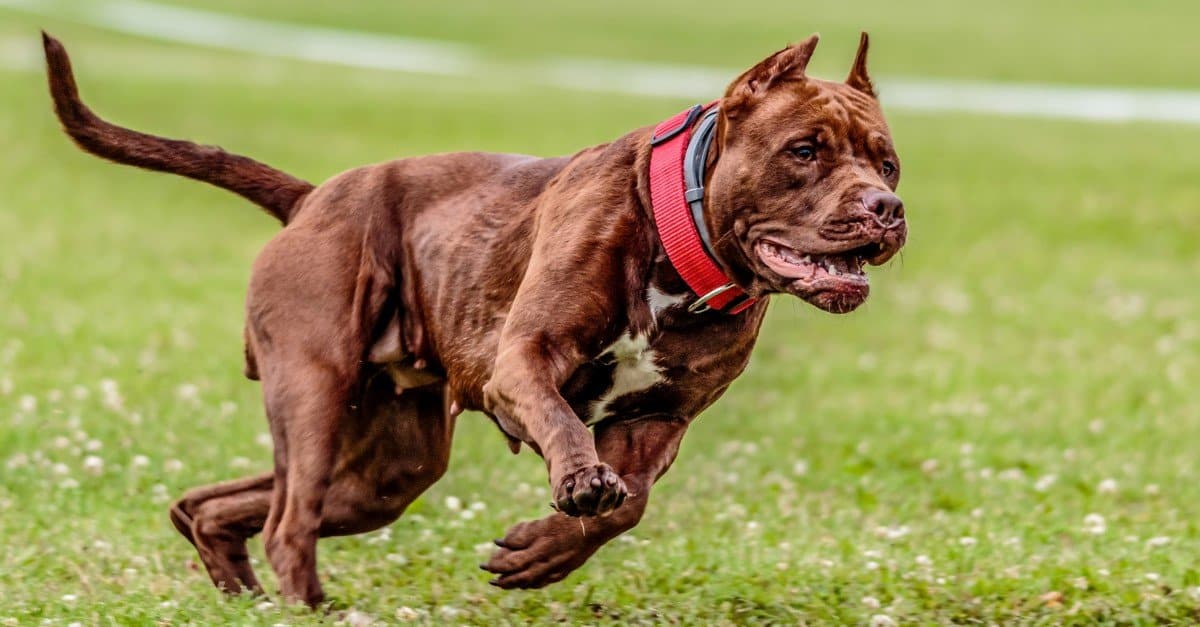
There are many reasons your dog is licking his lips. You may be yelling at your dog, or your dog is yawning if you ask. Others could be related to medical issues like dental disease and mouth pain. Your dog may be constantly licking his lips. It could be indicative of a deeper problem such as an underlying medical condition. These are the symptoms.
Insect bites
Insects are unavoidable, and your dog is no exception. Fleas can not only cause your dog to itch or lick its lips, but they can also pose serious health risks. Fleas can cause your dog to scratch or lick its skin. Fleas can cause allergic reactions and dangerous diseases such as tapeworms. Flea treatment for dogs is relatively effective.
Even though some insects can cause serious reactions in dogs, it is important to seek medical attention immediately. You should immediately seek medical attention if you notice your dog licking his lips after being bit. While some bites do not require treatment, a vet can administer treatment. To speed up the healing process you can also remove the stingers.
The sting is one of the most dangerous parts of an insect bite. Even if you get rid of the sting, the poison can still remain on the skin and cause serious swelling. It's important to scrape it off using a flat object, like a credit card, so that the sting doesn't continue to hurt your dog. If you're unsure of whether your dog has been stung, it's best to check with your veterinarian immediately. Pest bites can lead to infection and disease, so make sure to check with your veterinarian immediately.
After an insect bite, your dog should be examined by a veterinarian. To rule out underlying medical conditions, a vet might recommend a thorough physical exam for your dog if he is constantly licking his lips. A veterinarian will look for signs such as soft tissue injury, a bacteria infection, or foreign objects in the mouth. Sometimes, your dog may also be licking other parts than his face. Your dog may be licking other parts of his body in an attempt to relieve pain or allergies.
Dehydration
Dogs tend to lick their lips when they are dehydrated. This can be an indication of many medical conditions, such as seizures, periodontitis, or bloat. It is important to determine the cause of excessive lip licking in your dog and then treat it accordingly. It is easy to keep your dog's water bowl topped up with fresh water. If your dog keeps licking, you should get immediate medical attention.

Dogs that lick their lips unintentionally may be suffering from an infection. Dogs with diarrhea may also vomit or lick their lips. This condition can prove fatal and you need to see a doctor immediately. Diarrhea can be easily diagnosed by checking your dog's stool. Dogs can also lose their appetite and lick their mouths when they have diarrhea.
Dehydration can lead to vomiting, loss of appetite, and a lack of saliva. You might notice that your dog seems sick. Therefore, it is important to check how much water and kibble your dog eats. Your veterinarian may suggest that you change your dog's diet or give him a fluid pack. This will help keep him hydrated. A decrease in energy can also be caused by dehydration. Dogs can become dehydrated if they are given a fluid pack.
You should take your dog to the veterinarian if it seems like your dog is licking his lips excessively. Your veterinarian can determine the root cause of your dog's unusual behavior. It could be a sign of an underlying medical condition. Your veterinarian will examine your dog’s mouth, lips, teeth and oral cavity.
Survival instinct
The survival instinct of dog licking lips is related to the behavior of the mother dog. A mother dog licks her newborn puppy's lips to aid breathing, remove placental remnants, and clean it. The process also allows the pup to dispose of waste and hide from predators. Similar to humans, this behavior can be seen as protective instincts and could prevent the pup being attacked.
The licking of the lips is a common occurrence in the presence of scents. It could be an indication of discomfort or mild arousal. Licked lips soothe the licker, but they do not seem to affect the other dog. Despite these benefits, this behavior remains an enigma. It's a fascinating part our animal's survival instincts.
Stress
If your dog is constantly licking his lips, it could be a sign that he is stressed or experiencing discomfort. This is commonly known as excessive lips licking. It can be a sign that your dog has a health problem. Symptoms of chronic lip licking in dogs include stress, boredom, dehydration, and anxiety. A vet visit may be necessary if the behavior persists.
Sometimes dogs may lick their lips when they are nervous, scared, or anticipating eating. While this is an entirely normal behavior, lip licking during times of stress may be related to a thunderstorm or other threatening situation. You can take steps to stop your dog from licking his lips out of anxiety. A professional dog trainer can help you identify the cause of your dog's stress.
Begin to calmly treat your dog's habit of licking its lips because it is stressed. Do not reward your dog if it licks their lips. This could be detrimental to their health. Similarly, your dog may be in pain and need some time to calm down. If your dog is licking their lips, you should not give them a treat. It could be a sign of a possible health problem or pain.

Lip-licking can indicate a range of medical issues and environmental problems. A vet can determine if your dog is stress-related or has another underlying problem. If it's the latter, a visit to a veterinarian may be in order. Your dog's veterinarian can help you diagnose the problem and then treat it accordingly. Lip-licking could be a sign of another condition.
Compulsive licking disorder
Your dog may be constantly licking itself. There are many possible causes. You could have a problem with your dog's footpad, or it could be more serious. A common response to orthopedic issues such as hip dysplasia is compulsive tooth chewing. Consult your veterinarian to rule out other causes. A veterinary examination will determine the root cause. However, your dog's behavior will not change until you have a confirmed diagnosis.
Compulsive behavior can result from psychological disorders, such as anxiety and stress. Boredom, separation from owners, and stress can all contribute to excessive licking. Even when your dog temporarily stops licking, it may revert to its old behavior if left alone. Your dog might also experience stress from moving or arranging furniture. In these cases, your dog may return to the old behavior when left alone.
Excessive licking is an anxiety-related condition that can be caused by systemic causes or by a dog's sensitivity to various stimuli. The dog may lick an area of the body repeatedly, often leaving it with red, raw spots. Excessive licking can interfere with other activities, so you should treat your dog with care and kindness to ensure a long and healthy life together.
Compulsive dog licking may also include frequent tail-chasing or flank sucking, shadow chasing, fly snapping, and shadow chasing. Compulsive behavior could also include repetitive circling. For a diagnosis, a behavior specialist will want to consult with the owner, describing the symptoms in detail. Once the owner has described all the behavior details, the vet can diagnose if the problem is serious.
FAQ
These are the three most important things to do before you get a cat.
Before buying a cat, make sure you have considered these questions:
-
Is the cat suffering from any health problems?
-
Can the cat eat all of my food?
-
Do I want a cat because I love cats, or do I just want a pet?
What should you think about when purchasing a pet for your family?
The first thing to consider is what kind of lifestyle you want for yourself and your family. Do you have children? If so, how many? How old are they now Are there any special dietary requirements for them?
Do you have allergies? Are there any other things you should know about your pet's health?
After answering these questions, consider whether you are looking for an active companion or a calm lap dog, a house-trained pet, or a tank of tropical fish.
Adopting a puppy is a great idea. Make sure to visit a rescue or shelter group so you can get to know the animals and feel at ease with them.
You will also need to confirm that the animal has been immunized against rabies or other diseases.
Next, check with the owner to see if he/she will take care your animal while you're on vacation. This will ensure that you don't have to worry about leaving the pet alone.
You should remember that pets are a part of your family and that you should not adopt them unless you truly love them!
Which amount cats or dogs are easier to train?
Both. It depends on how they are trained.
Giving them rewards for doing what you want will help them learn more quickly. They'll learn to ignore you if they don't listen.
There is no right answer. You need to determine the best way of teaching your cat or dog.
Statistics
- A 5% affiliation discount may apply to individuals who belong to select military, law enforcement, and service animal training organizations that have a relationship with Nationwide. (usnews.com)
- Monthly costs are for a one-year-old female mixed-breed dog and an under one-year-old male domestic shorthair cat, respectively, in excellent health residing in Texas, with a $500 annual deductible, $5,000 annual benefit limit, and 90% reimbursement rate. (usnews.com)
- In fact, according to ASPCA, first-year expenses can sum up to nearly $2,000. (petplay.com)
- Reimbursement rates vary by insurer, but common rates range from 60% to 100% of your veterinary bill. (usnews.com)
- It is estimated that the average cost per year of owning a cat or dog is about $1,000. (sspca.org)
External Links
How To
The best way to tell a dog where it is appropriate to go to urinate.
Teaching your pet how to use the toilet correctly is essential. It's important to learn how to train them to use the toilet properly if your dog starts to venture outside. These are some things to remember when teaching your dog how to properly use the toilet.
-
Training should be started early. Training early is key if you want to avoid accidents during playtime
-
Food rewards are a good idea. It will increase your chances of success if you reward your pet for each successful trip to a potty.
-
Keep treats away from the area where your pooch pees. This could lead to your dog identifying urine smell as his favorite treat.
-
Before you allow your dog outside, make sure that no other animal is nearby. Dogs who observe others relieved themselves may assume it's normal.
-
Be patient. It might take your puppy a little longer to learn than an adult.
-
Before you let your dog go to the bathroom, let her sniff everything. It will make her learn quicker if she has the opportunity to smell the toilet before entering the bathroom.
-
When you are doing business, your dog should not be allowed to sit next to the toilet. That could lead to confusion.
-
When you finish, wipe down the seat and the floor around the toilet. These areas will serve to remind you of what to do the next time.
-
Any messes must be cleaned up immediately. Clean up after your dog has an accident. The dog might attempt to vomit again if it isn't cleaned up quickly.